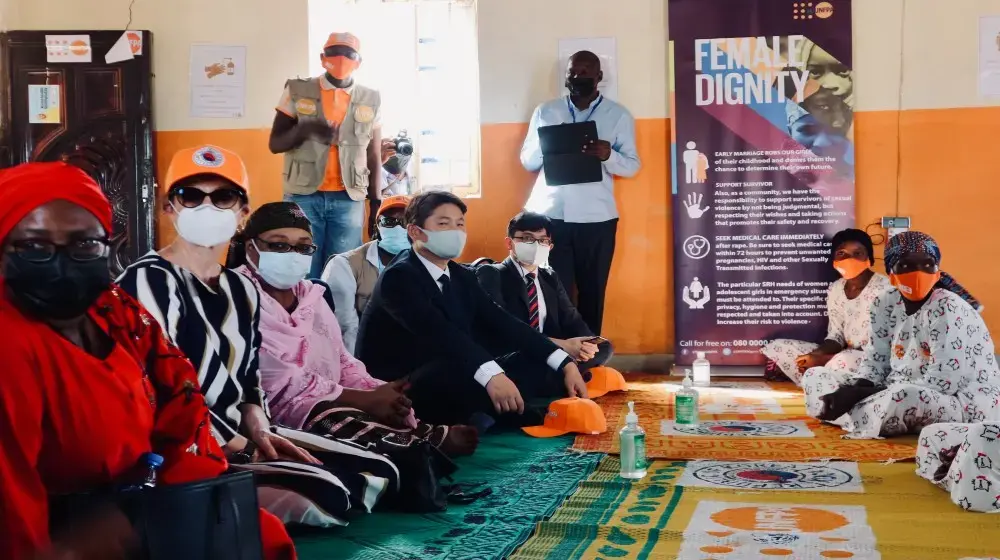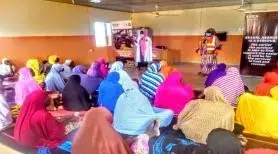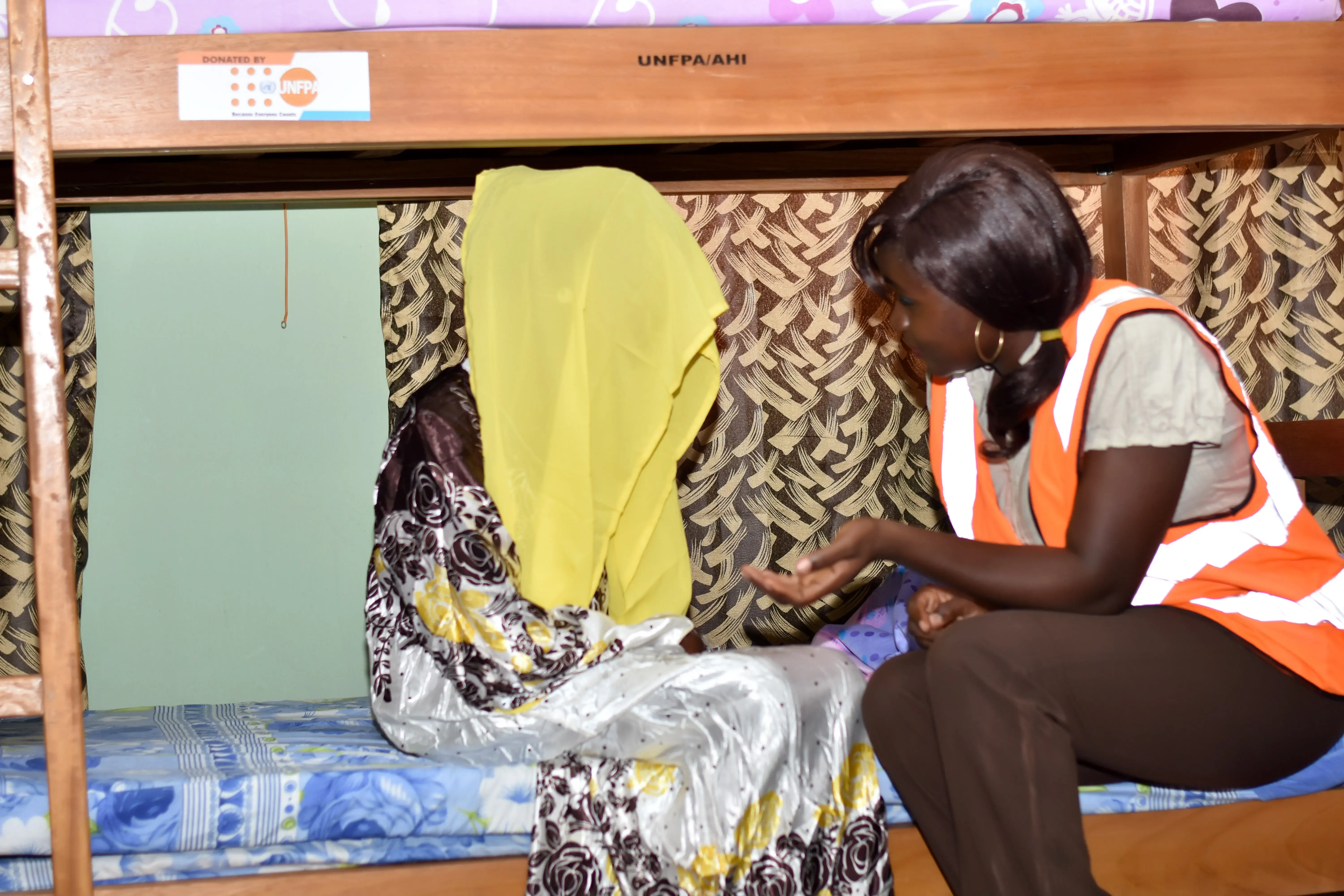Sexual Reproductive Health (SRH) and Fistula intervention in Borno State implemented by UNFPA, funded by KOICA.
Background
- The project started in 2018 when UNFPA collaborated with the state under a program funded by a government agency of the Republic of Korea (KOICA).
- It is a 4-year project which started on the 1st of January 2018 and will end on the 31st of December 2021 (currently ongoing).
- KOICA through the United Nations Population Fund (UNFPA) has delivered critical medical services for women and girls in 3 LGAs (Konduga, Jere, and MMC), Borno State with the total funding support of 5 million US Dollars.
- The key areas of intervention for this project are improving access to maternity care, prevention, and treatment of childbirth complications including obstetric fistula, provision of comprehensive healthcare and rehabilitation to survivors of gender-based violence, and supporting young people in the areas of innovations so that they can fulfil their potentials.
- The project which was carried out and supervised by UNFPA in collaboration with the Ministry of Health was to make sure it can foster resilience, provide basic medical services for women and girls in Borno State to restore their dignity.
- UNFPA has been able to increase access to comprehensive maternal, child care and increase access to Fistula care.
- UNFPA humanitarian programme with support from KOICA continues to impact positively the lives of women and young adolescent girls in Borno State in keeping the health systems functioning, and also maintaining the provision of sexual and reproductive health and rights information and services while protecting their lives and that of the health care providers from COVID-19.
- The situation in Borno State is a complex protracted crisis with huge developmental needs with a lot of damaged healthcare infrastructures located within and outside Maiduguri town.
- This situation has led to the fleeing of healthcare workers, closing of businesses including local transportation services thus affecting hugely access to essential health services like maternal and newborn care.
- The Fistula Centre of Excellence is a major output of KOICA’s intervention and the center has been adjudged as an important point of call for the repair of Fistula cases in the Northeast.
Key Achievements
- Women and girls are the key targets for this project and they have been supported through Fistula repairs and access to maternal health across the 3 LGAs (Konduga, Jere and MMC).
- Part of an innovative approach for women and girls to access and increase maternal health was the construction of a Fistula center of excellence situated inside the State Specialist Hospital, Maiduguri. It has the capacity to accommodate women suffering from Fistula across the Northeastern part of Nigeria.
- 449 fistula survivors surgically repaired and treated
- 391 fistula survivors who underwent surgical repair have acquired skills in a chosen skill area of interest from the comprehensive vocational training program. They received starter kits and finance to start their own income-generating activity as a way of supporting and encouraging their economic stability and resilience.
- 37 Fistula surgeons and nurses have been trained as part of their capacity building to efficiently and effectively repair women that have suffered from the scourge.
- 10 Medicalized Mini ambulances (fondly called Keke Napep) were procured and distributed to hard-to-reach settlements with bad or inaccessible roads. Riders mobilized and trained on basic first aid skills and pregnancy warning signs across the 3 LGAs. This model was adapted from the tricycles public taxis that are commonly used for transportation in communities with poor terrain due to their adaptability and cost-effective maintenance.
Challenges:
- Insecurity creating reducing access to treatment and follow-up for fistula survivors in hard-to-reach locations in the state due to insecurity
- Funding to strengthen socio-economic reintegration of treated fistula survivors and to raise awareness on the root causes of VVF





